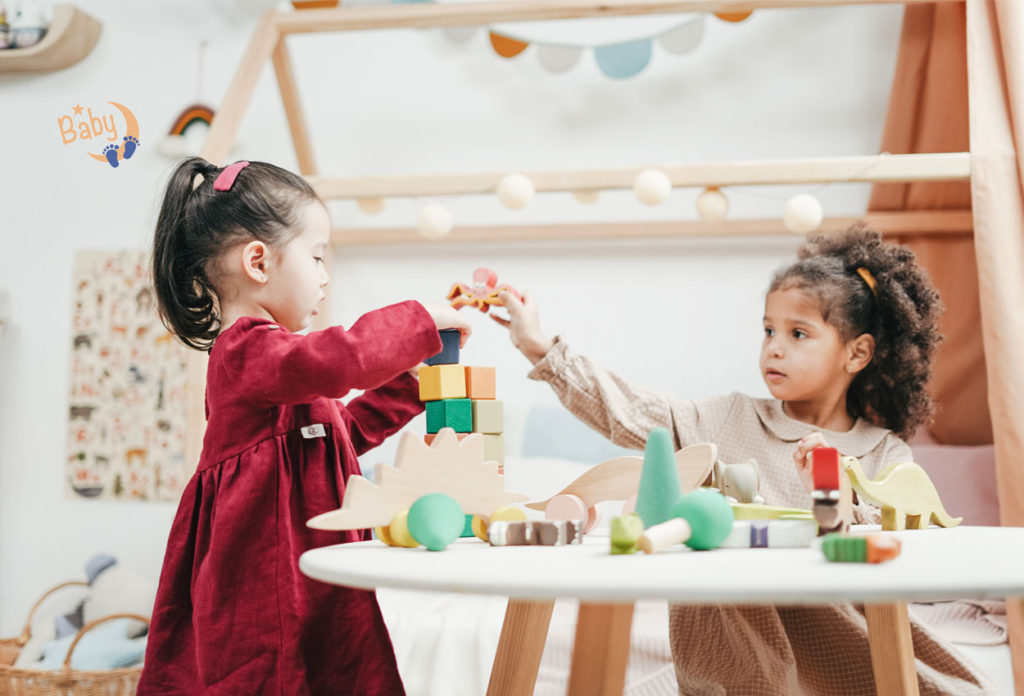Kita and sleep, how they impact each other
Starting kindergarten (or Kita in Germany) is a big step for a family, especially for the little member who has to adjust to a new environment and people around him. Besides the hustle to find the right kindergarten or the kind care-takers we wish to have for our little ones, the bureaucracy with all the formalities and the angst of not getting a place at the end of the day, there is another important aspect we need to consider. And that is SLEEP!
It goes without saying that this big change can be very stressful for the little kid. First, he has to learn and accept to stay apart from his mom or main parental figure for a longer period of time, thus a peak of separation anxiety occurs. In most cases thou, the child shows he is uncomfortable with the new change in different ways like crying a lot, hanging on to the mother or later on to a favourite care-taker, refusing to eat or sleep at the kindergarten.
The acclimatisation in a German Kita
However, the German system created something very smart which helps the child gradually get used to this new phase of his life, called the “Eingewöhnung”. It basically means that the mother or the father goes to the kindergarten along with the child and stays there with him or her, 1-2 hours at first then half a day and so on, every day for about 2-3-4 weeks until the child feels familiar with the new situation.
Depending on the child temperament and the worries parents project on their kid, this acclimatisation phase can last between 2 weeks and 2 months with lots of ups and downs from mild flues to complete rejection of going to kita.
Unfortunately this affects the child’s mood, sleep, appetite and even health all together everywhere. And until he finds a flexible routine he is used to or the one which gives him a sense of security, the child will not feel completely integrated.
Moreover, studies have shown that the child’s cortisol level (the stress hormone) fluctuates a lot during this period of time, even if the mother stays there with the child, probably because of other factors like group interaction or compatibility with the care-takers.
What to do?
Here are nine pieses of advice I would recommend parents do during this day-care settling-in phase:
- Accept this new phase and the unpredictability it can bring
- Trust your child and try to project less parental worries on him
- Connect with him more, play and spend more quality time together
- Follow an age appropriate routine for the child
- Plan a super early bedtime
- Provide him a healthy nutrition with protein and low fat carbohydrates
- Spend more time in nature together with more exposure to natural light
- Reassure your child of your unconditional support and care
- Provide the best sleep set-up for your child (at home as well as at the kindergarten)
The downside of the German kita educational system lays thou in not paying too much attention to sleep for children. It could be because of a child led educational system or because parents want more freedom for their kids, but it is important and healthy to set these boundaries as well. It is about meeting and responding to the children’s needs more than to their wishes or whims. In the same way we don’t give our small kids chocolate as much as they wish or do not let them play in front of a screen the whole day, we should also prioritise sleep and establish an age appropriate routine and organise a sleep set-up for children at kindergarten too. Because kids thrive on predictability and boundaries.
Following the same cortisol red line, studies have proved that sleep training is less stressful for the baby or the child than starting day-care.
So besides giving it the credit and the proper extra care the child needs, you might also consider sleep coaching the child before starting day-care so he can already have some stabile referrals to come back to and some healthy sleep habits when facing challenging times.
If you need more support with sleep coaching your baby or toddler, let me know and we could arrange a qualifying call. Just click on the button below to schedule it.
